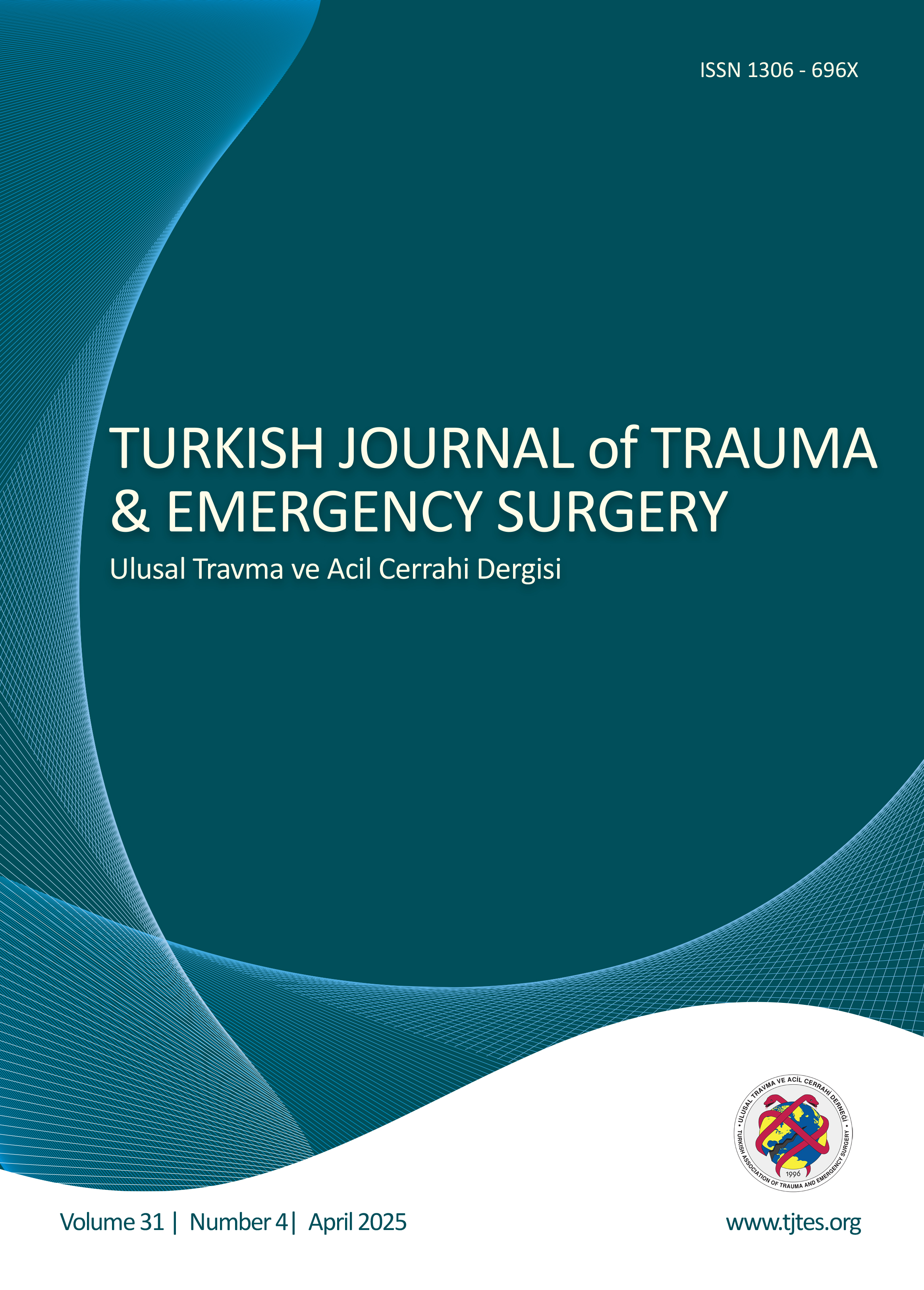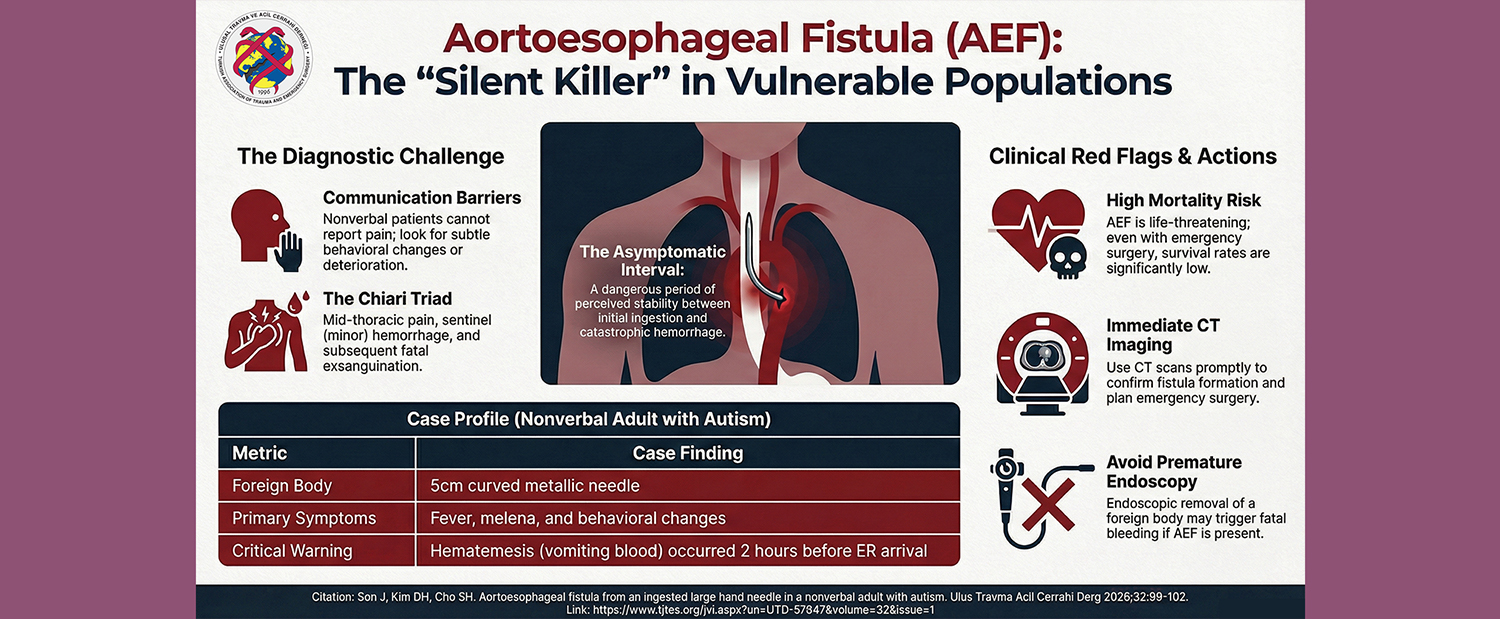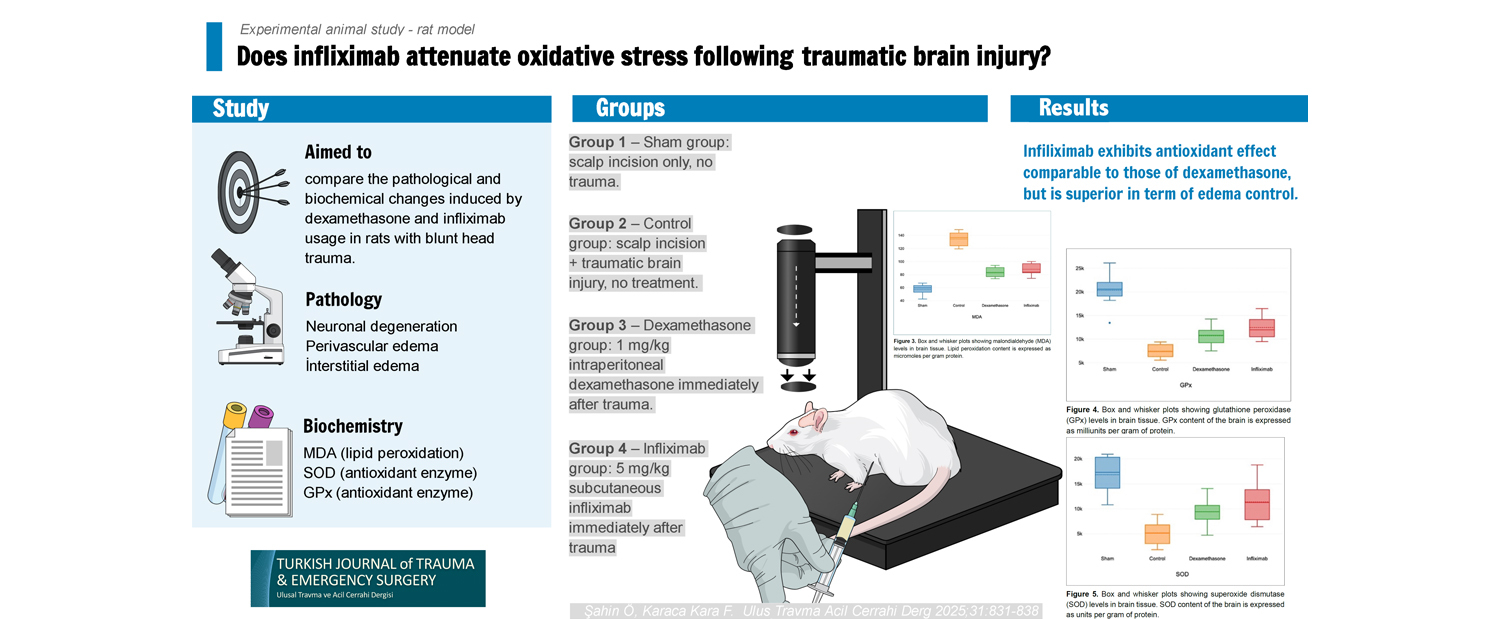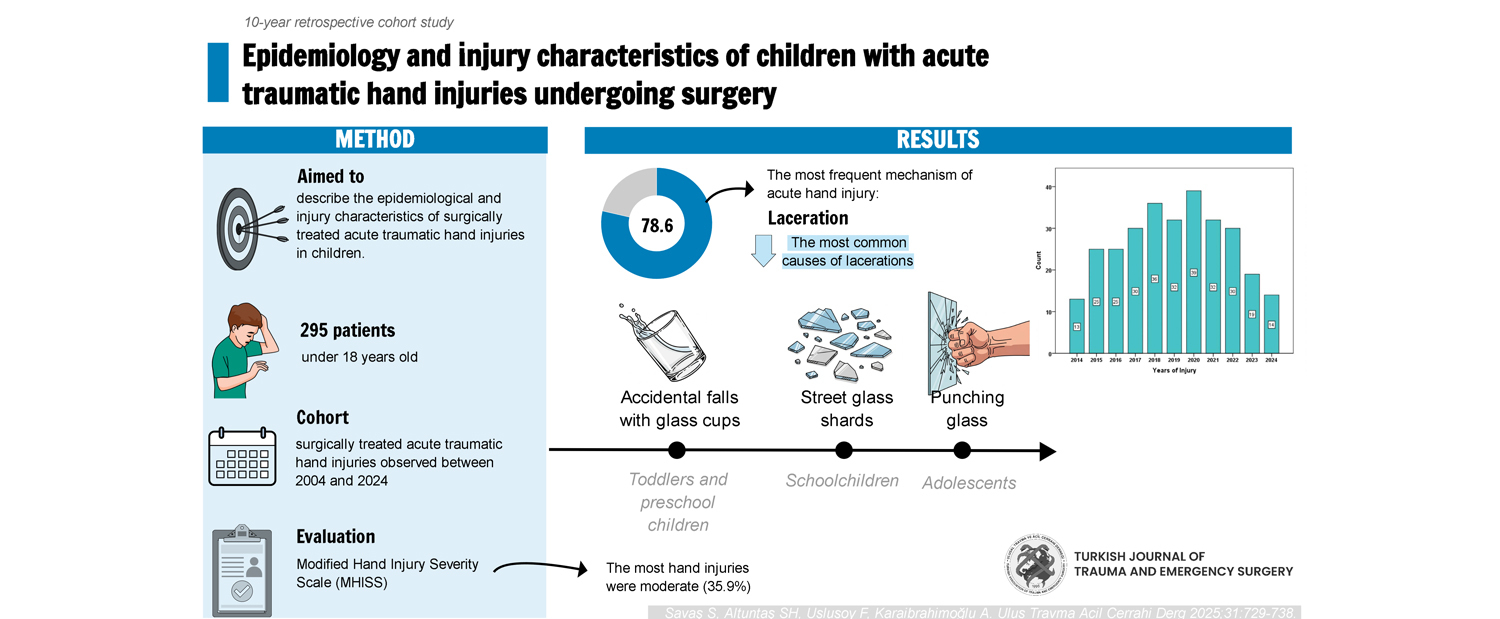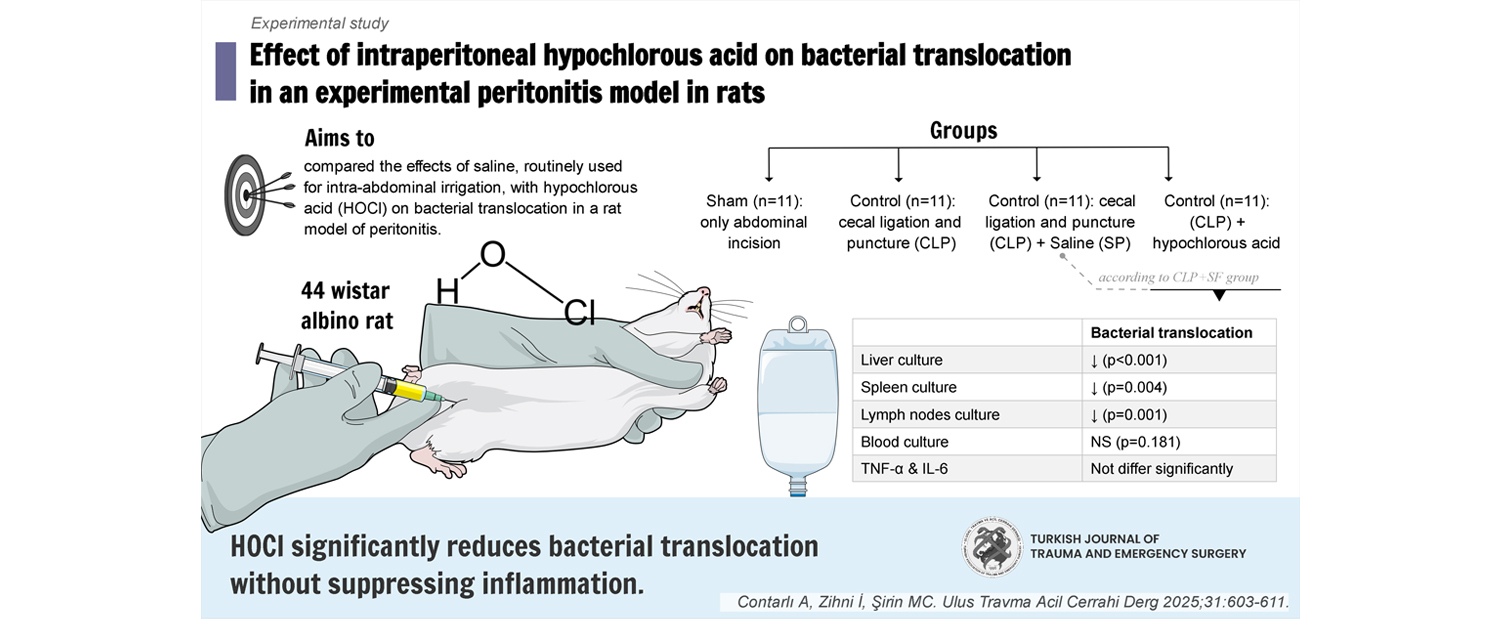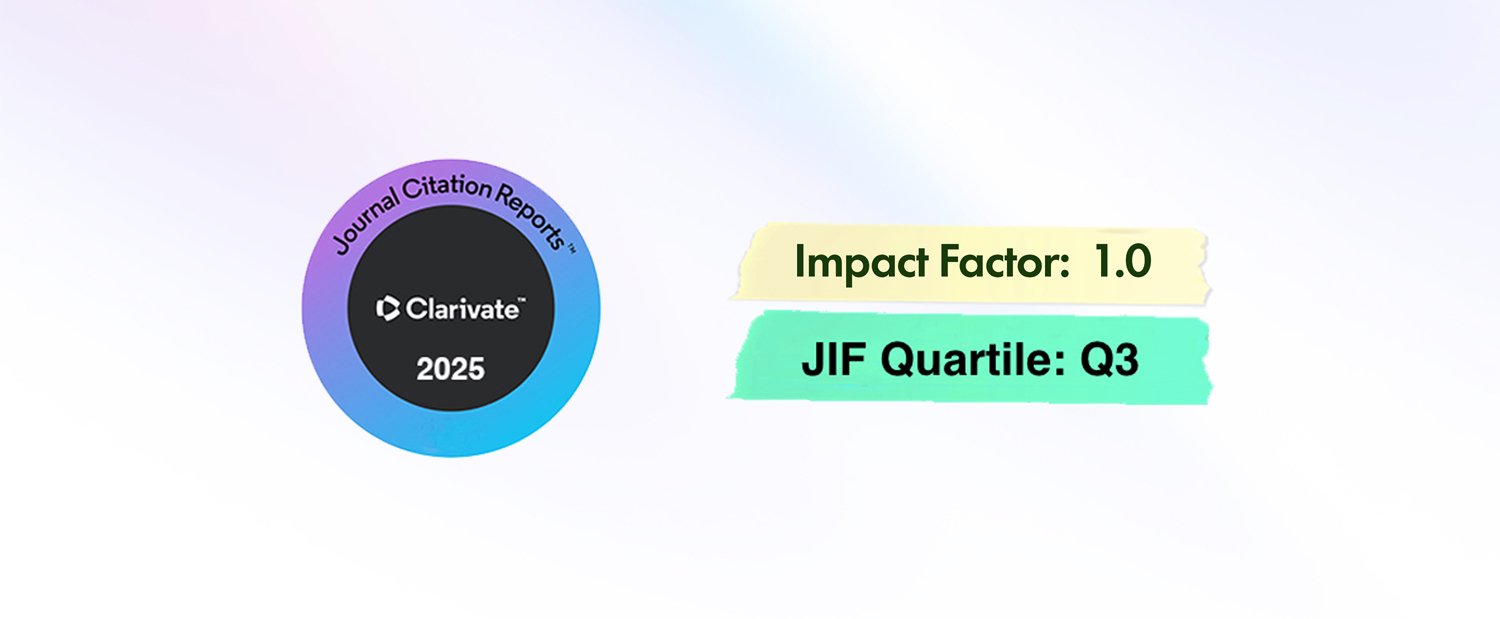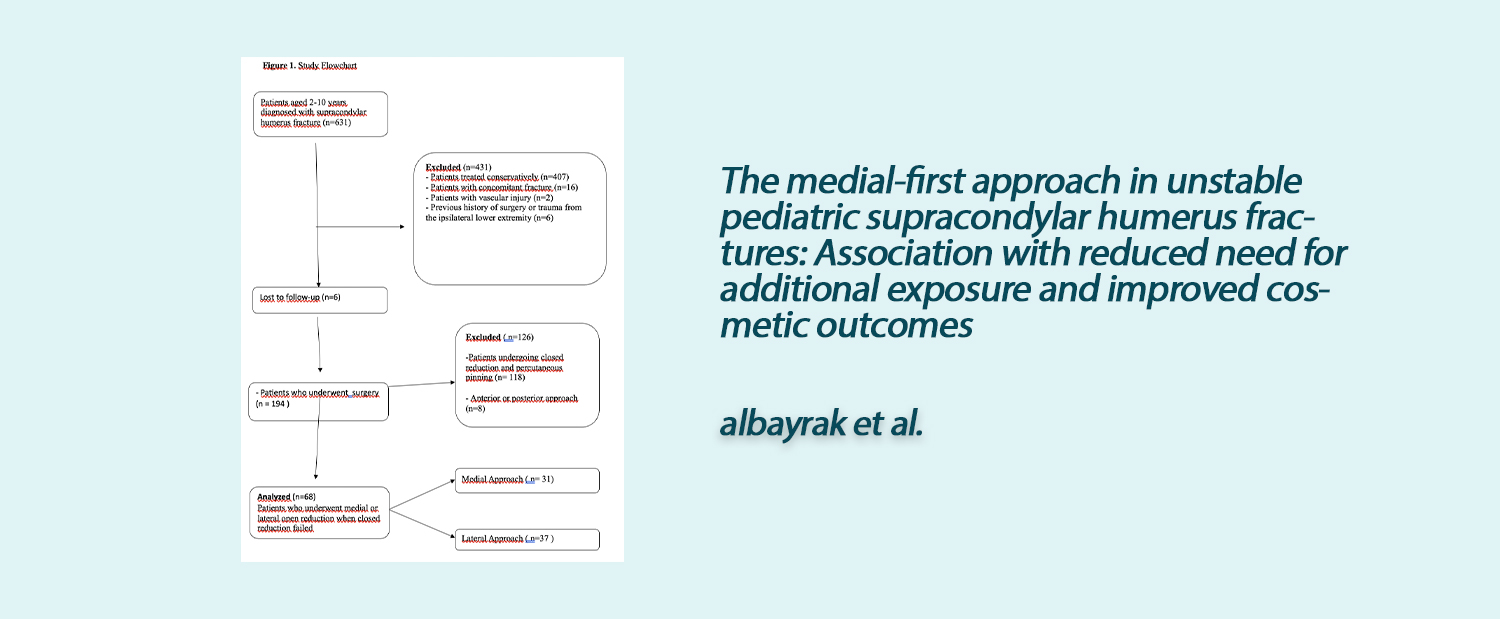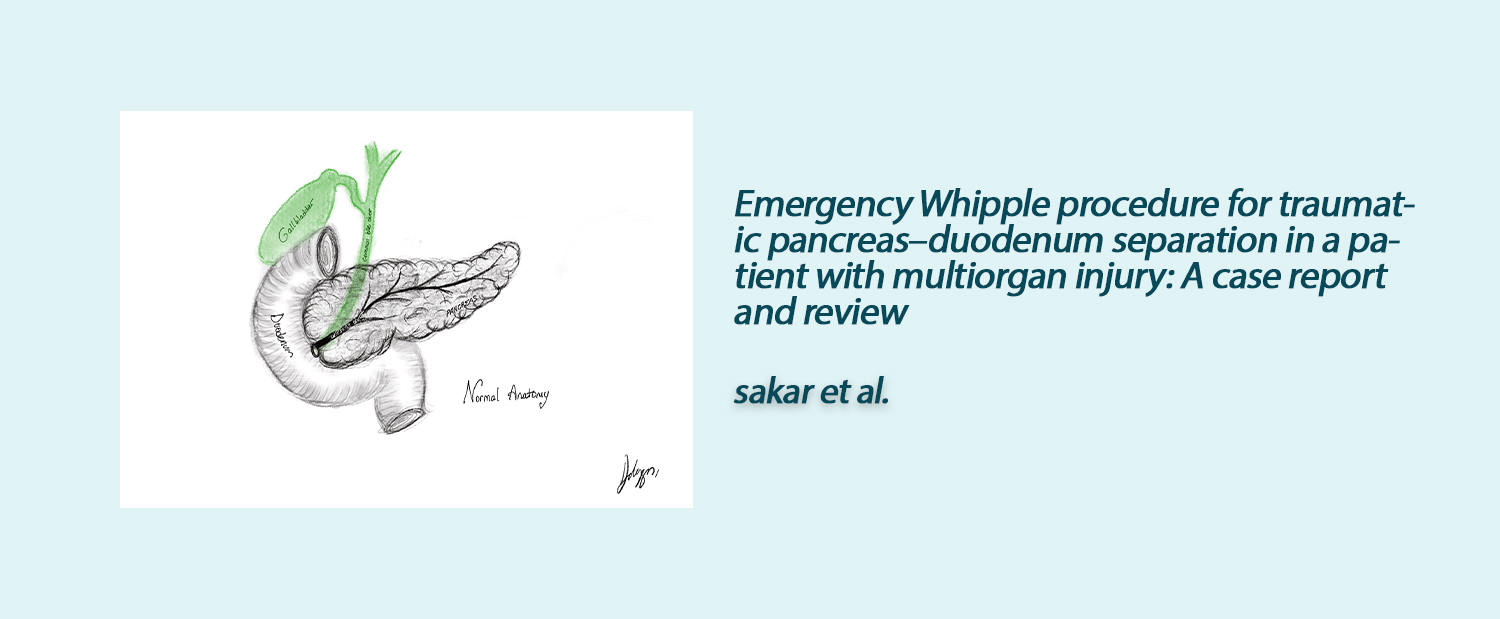Quick Search
Policies
Advertisement Policy
The Turkish Journal of Trauma and Emergency Surgery can publish advertisement in the journal upon the approval of the Editor in Chief. Potential advertisers should contact the Editorial Office. Advertisers have no effect on the editorial decisions or advertising policies.
Archiving Policy
The content published by the Turkish Journal of Trauma and Emergency Surgery is electronically preserved by using internet archive. https://tjtes.org/jvi.aspx?pdir=travma&plng=eng&list=pub
Complaint and Appeal Policy
Appeal and complaint cases are handled within the scope of COPE guidelines by the Editorial Board of the journal. Appeals should be based on the scientific content of the manuscript. The final decision on the appeal and complaint is made by Editor in Chief. An Ombudsperson or the Ethical Editor is assigned to resolve cases that cannot be resolved internally. Authors should get in contact with the Editor in Chief regarding their appeals and complaints via e-mail at [email protected]
Conflict of Interest Policy
Turkish Journal of Trauma and Emergency Surgery editorial review process is in accordance with the Good Editorial Practice set by international editorial organizations (ICMJE, EASE, WAME, COPE, CSE, ). WAME indicates that “conflict of interest exists when an author, reviewer, or editor in the publication process (submission of manuscripts, peer review, editorial decisions, and communication between authors, reviewers and editors) has a competing interest that could unduly influence his or her responsibilities (academic honesty, unbiased conduct and reporting of research, and integrity of decisions or judgments) in the publication process”.
Turkish Journal of Trauma and Emergency Surgery requires that each author, reviewer, and editor must disclose to the editor-in-chief any conflict of interest related to family, personal, financial, political or religious issues as well as any competing interest outlined above at the WAME’s definition. Whether or not a conflict of interest and financial support exist, they must be declared at the ICMJE Conflict of Interest form as well as at the end of the manuscripts. If a reviewer, an associate editor, or a section editor has a conflict of interest and/or believes that it is not appropriate to be a reviewer, or an editor for a given manuscript, the reviewer or the editor should resign from the assignment. The Editorial Board members of the Turkish Journal of Trauma and Emergency Surgery, who handle submissions and recommend decisions to the Editor in chief (EIC, Managing Editor and Section Editors) may also submit their own manuscripts to the journal as all of them are active researchers and scientists. However, they cannot take place at any stage on the editorial decision of their manuscripts in order to minimize any possible bias. They will be treated like any other author, and if any, final acceptance of such manuscripts can only be made by the positive recommendation of at least two external reviewers, who are not the members of decision-making Editorial Board.
Authors should not contact any of the section editors during the review process. All necessary information regarding the process of a manuscript can be obtained from the editorial office. However, the names of the handling editor and the reviewers are not given to the author(s). Due to the Turkish Journal of Trauma and Emergency Surgery’s double-blinded review principles, the names of authors and reviewers are not known to the other.
Corrections Policy
If the editors or publisher learn from a third party that a published work contains a material error or inaccuracy, the authors must promptly correct or retract the article or provide the journal editors with evidence of the accuracy of the article.
Ethics Policy
The Editorial Board of the Turkish Journal of Trauma and Emergency Surgery and the Publisher adheres to the principles of the International Council of Medical Journal Editors (ICMJE), the World Association of Medical Editors (WAME), the Council of Science Editors (CSE), the Committee on Publication Ethics (COPE), the US National Library of Medicine (NLM), the World Medical Association (WMA) and the European Association of Science Editors (EASE).
In accordance with the journal's policy, an approval of research protocols by an ethics committee in accordance with international agreements “WMA Declaration of Helsinki - Ethical Principles for Medical Research Involving Human Subjects (last updated: October 2013, Fortaleza, Brazil)”, "Guide for the care and use of laboratory animals (8th edition, 2011)" and/or “International Guiding Principles for Biomedical Research Involving Animals (2012)” is required for all research studies. If the submitted manuscript does not include ethics committee approval, it will be reviewed according to COPE's guideline (Guidance for Editors: Research, Audit and Service Evaluations). If the study should have ethical approval, authors will be asked to provide ethical approval in order to proceed the review process. If they cannot provide ethical approval, their manuscript will be rejected and also their institutions and when needed, the related bodies in their country will be informed that such studies must have ethics committee approval. If they provide approval, review of the manuscript will continue.
If the study does not need ethics committee approval after the editorial board’s review, the authors will be asked to provide an ethics committee approval or a document given by a related independent committee that indicates the study does not need ethics committee approval according to the research integrity rules in their country. If the authors provide either an approval or a document showing that ethics approval is not needed, the review process can be continued. If the authors cannot provide either documents, the manuscript may be rejected.
For articles concerning experimental research on humans, a statement should be included that shows informed consent of patients and volunteers was obtained following a detailed explanation of the procedures that they may undergo. The journal may request a copy of the Ethics Committee Approval received from the relevant authority. Informed consent must also be obtained for case reports and clinical images.
Studies using human or animal subjects should be approved by the appropriate institutional and local Ministry of Health ethics committees. Ethics approval of research protocols in accordance with international agreements is required for experimental, clinical, and drug studies, as well as for some case reports. Ethics committee reports or an equivalent official document may be requested from the authors. For manuscripts involving experimental research on humans, a statement should be included that shows that written, informed consent of patients and volunteers was obtained. For studies carried out on animals, the measures taken to prevent pain and suffering of the animals should be stated clearly. A statement regarding patient consent, and the name of the ethics committee, the ethics committee approval date, and number should be stated in the Materials and Methods section of the manuscript. It is the authors’ responsibility to carefully protect patients’ anonymity.
Fee Waiver Policy
There is no fee waiver.
Funding Sources Policy
All authors are required to declare what support they received to carry out their research. Declaring funding sources acknowledges funders’ contributions, fulfills funding requirements, and promotes greater transparency in the research process.
Each author must individually declare all sources of funding received for the research submitted to the journal. This information includes the name of granting agencies, grant numbers, and a description of each funder’s role. If the funder has played no role in the research, this must be stated as well.
Authors are not required to provide the complete list of every single grant that supports them if the grant is not related to the research published.
Licenses and Copyright Policy
Authors publishing with the journal retain the copyright to their work licensed under the Creative Commons Attribution-NonCommercial 4.0 International license (CC BY-NC 4.0) and grant the Publisher non-exclusive commercial right to publish the work. CC BY-NC 4.0 license permits unrestricted, non-commercial use, distribution, and reproduction in any medium, provided the original work is properly cited.
Open Access Policy
The Turkish Journal of Trauma and Emergency Surgery supports the Budapest Open Access Initiative statement of principles that promotes free access to research literature. The declaration defines open access to academic literature as free availability on the internet, permitting users to read, record, copy, print, search, or link to the full text, examine them for indexing, use them as data for software or other lawful purposes without financial, legal, or technical barriers. Information sharing represents a public good, and is essential to the advancement of science. Therefore, articles published in this journal are available for use by researchers and other readers without permission from the author or the publisher provided that the author and the original source are cited. The articles in the Turkish Journal of Trauma and Emergency Surgery are accessible through search engines, websites, blogs, and other digital platforms. Additional details on the Budapest Open Access Initiative and their guidelines are available at https://www.budapestopenaccessinitiative.org.
Open Access Policy is based on rules of Budapest Open Access Initiative the Turkish Journal of Trauma and Emergency Surgery applies the Creative Commons Attribution-NonCommercial 4.0 International (CC BY-NC 4.0) license articles we publish. If you submit your paper for publication, you agree to have the CC BY-NC 4.0 license applied to your work. Under this Open Access license, you as the author agree that anyone can copy, distribute or reuse the content of your article for non-commercial purposes for free as long as the author and original source are properly cited. The corresponding author must sign the Creative Commons License Agreement after their articles are accepted.
Open Access Statement
The journal is an open access journal and all content is freely available without charge to the user or his/her institution. Except for commercial purposes, users are allowed to read, download, copy, print, search, or link to the full texts of the articles in this journal without asking prior permission from the publisher or the author. This is in accordance with the BOAI definition of open access. The open access articles in the journal are licensed under the terms of The open access articles in the journal are licensed under the terms of the Creative Commons Attribution-NonCommercial 4.0 International (CC BY-NC 4.0) license.

Peer Review Policy
Only those manuscripts approved by its every individual author and that were not published before in or sent to another journal, are accepted for evaluation.
Submitted manuscripts that pass preliminary control are scanned for plagiarism using iThenticate software. After plagiarism check, the eligible ones are evaluated by Editor-in-Chief for their originality, methodology, the importance of the subject covered and compliance with the journal scope. Editor-in-Chief evaluates manuscripts for their scientific content without regard to ethnic origin, gender, sexual orientation, citizenship, religious belief or political philosophy of the authors and ensures a fair double-blind peer review of the selected manuscripts.
The selected manuscripts are sent to at least two external national/international independent peer reviewers for evaluation and publication decision is given by Editor-in-Chief upon modification by the authors in accordance with the reviewers claims.
Editor-in-Chief does not allow any conflicts of interest between the authors, editors and reviewers and is responsible for final decision for publication of the manuscripts in the Journal.
Reviewers’ judgments must be objective. Reviewers’ comments on the following aspects are expected while conducting the review.
- Does the manuscript contain new and significant information?
- Does the abstract clearly and accurately describe the content of the manuscript?
- Is the problem significant and concisely stated?
- Are the methods described comprehensively?
- Are the interpretations and consclusions justified by the results?
- Are adequate references made to other Works in the field?
- Is the language acceptable?
Reviewers must ensure that all the information related to submitted manuscripts is kept as confidential and must report to the editor if they are aware of copyright infringement and plagiarism on the author’s side.
A reviewer who feels unqualified to review the topic of a manuscript or knows that its prompt review will be impossible should notify the editor and excuse himself from the review process.
The editor informs the reviewers that the manuscripts are confidential information and that this is a privileged interaction. The reviewers and editorial board cannot discuss the manuscripts with other persons. The anonymity of the referees is important.
Reviewers who seek assistance from a trainee or colleague in the performance of a review should acknowledge these individuals' contributions in the written comments submitted to the editor. Reviewers must maintain the confidentiality of the manuscript, which may prohibit the uploading of the manuscript to software or other AI technologies where confidentiality cannot be assured. Reviewers must request permission from the journal prior to using AI technology to facilitate their review.
Plagiarism Policy
All submissions are screened using similarity detection software at least two times: on submission and after completing revisions. In the event of alleged or suspected research misconduct, e.g., plagiarism, citation manipulation, or data falsification/fabrication, the editorial board will follow and act in accordance with COPE guidelines. Plagiarism, including self-plagiarism, that is identified at any stage will result in rejection of the manuscript.
Publication Charges Policy
Submission Fee
In order to further improve the quality and accessibility of the journal, a fee will be charged as a contribution to the cost of production. This fee will be charged during the process of application of submitted articles and will be charged regardless of eventual acceptance/rejection of the manuscript.
Foreign authors can complete the article submission process after depositing USD 400.- to the USD account below. Turkish authors can complete the article submission process after depositing 2000.- TL to the account below.
Recipient: ULUSAL TRAVMA VE ACIL CERRAHI DERNEGI IKTISADI ISLETMESI - IBAN: TR02 0006 4000 0021 0490 9277 35 (USD)
Turkish authors can complete the article submission process after depositing 2.000.- TL to the account below. The article number released at the last stage of the article upload process must be written in the bank shipment description section.
Alıcı: ULUSAL TRAVMA VE ACİL CERRAHİ DERNEĞİ İKTİSADİ İŞLETMESİ - IBAN: TR75 0006 4000 0011 0491 5103 66 (Türk Lirası Hesabı)
Fast-track Publication Fee
The Turkish Journal of Trauma and Emergency Surgery, the scientific publication of the National Association of Trauma and Emergency Surgery, has now added the option of a Fast-track Publication Fee to meet the demand for an accelerated publication process. The charge for early publication is 5,000 TL for Turkish authors and 500 USD for foreign authors.
This fee is not required, it merely provides authors with an alternative, and is in compliance with the Inter-Universities Council statement of January 25, 2022 regarding predatory journals.
Authors who would like additional information regarding expedited publication or make a request for this service can contact Kare Publishing, the publisher of our journal who acts on behalf of the association, by e-mail at [email protected].
Retraction Policy
The publisher will take all appropriate measures to modify the article in question, in close cooperation with the editors, in cases of alleged or proven scientific misconduct, fraudulent publication, or plagiarism. This includes the prompt publication of an erratum, disclosure, or retraction of the affected work in the most severe case. Together with the editors, the publisher will take reasonable steps to detect and prevent the publication of articles in which research misconduct occurs and will under no circumstances promote or knowingly allow such abuse to occur.
Withdrawal Policy
The Turkish Journal of Trauma and Emergency Surgery is committed to providing high quality articles and uphold the publication ethics to advance the intellectual agenda of science. We expect our authors to comply with, best practice in publication ethics as well as in quality of their articles.
Withdrawal of a manuscript will be permitted only for the most compelling and unavoidable reasons. For withdrawal of a manuscript authors need to submit an "Article withdrawal Form", signed by all authors mentioning the reason for withdrawal to the Editorial Office. Authors must not assume that their manuscript has been withdrawn until they have received appropriate notification to this effect from the editorial office.
In a case where a manuscript has taken more than five months’ time for review process, that allows the author to withdraw manuscript.
Manuscript withdrawal penalty: After receiving the Article withdrawal Form, the Turkish Journal of Trauma and Emergency Surgery Editorial Board will investigate the reason of withdrawal.
If the reason finds to be acceptable, the author is allowed to withdraw the manuscript without paying any withdrawal penalty. If not the Turkish Journal of Trauma and Emergency Surgery will not accept any manuscripts from the same author for one year.
Important notes: Manuscripts may be withdrawn at any stage of review and publication process by submitting a request to the editorial office. Manuscript withdrawal will be permitted after submission only for the most compelling and unavoidable reasons.
If the author wants to withdraw a manuscript, the author needs to submit a completed "Article withdrawal Form", signed by all authors of the manuscript stating the reasons for manuscript withdrawal.
The manuscript will not be withdrawn from publication process until a completed, signed form is received by the editorial office. Authors must not assume that their manuscript has been withdrawn until they have received appropriate notification to this effect from the Turkish Journal of Trauma and Emergency Surgery editorial office.

